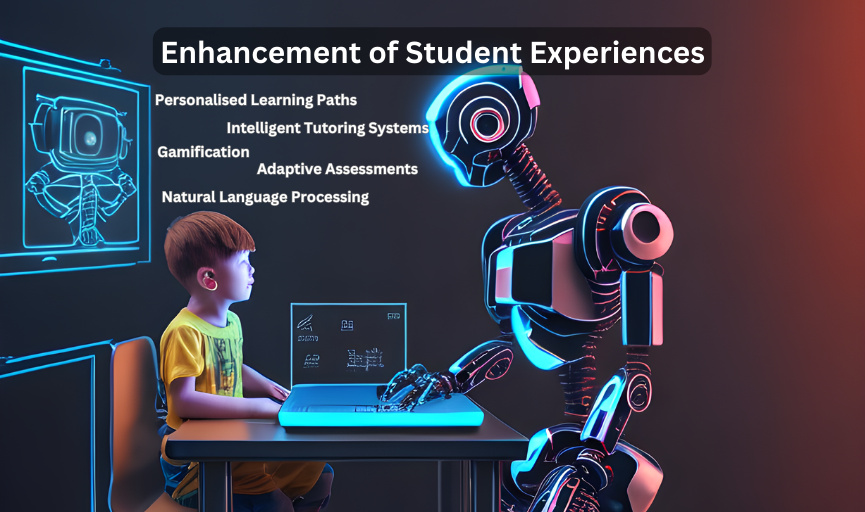AI in Education: Personalized Learning Paths for Every Student

Heading
The integration of Artificial Intelligence (AI) into the education sector is paving the way for a revolution in personalized learning. AI’s ability to adapt to the needs of individual students is transforming the traditional one-size-fits-all approach to education, making it possible to tailor learning experiences to each student’s strengths, weaknesses, and learning pace.
Customized Learning Experiences
AI systems can analyze a student’s performance on assignments and tests to identify areas where they excel and where they need more support. This data can then be used to create a customized learning path that focuses on developing the skills they need most.
Adaptive Learning Platforms
Adaptive learning platforms use AI to adjust the difficulty of material in real-time, providing students with a challenging yet achievable learning experience. This helps keep students engaged and motivated, as the content is always at the right level for their current abilities.
Enhancing Teacher Support
AI doesn’t replace teachers; it enhances their ability to support students. By automating administrative tasks and providing insights into student performance, AI frees up teachers to spend more time on one-on-one interactions and personalized instruction.
Early Identification of Learning Disabilities
AI tools can help in the early identification of learning disabilities by monitoring student interactions and flagging unusual patterns. This early detection allows for timely intervention and support, which is crucial for the student’s academic development.
Global Access to Education
AI-powered education platforms can provide high-quality education to students in remote or underserved areas. By offering personalized learning experiences online, AI helps bridge the educational divide, giving every student the opportunity to learn and grow.
Preparing for the Future
As the job market evolves, AI in education can help prepare students for the future by teaching them how to learn and adapt. The skills developed through personalized learning paths are not just academic; they are the critical thinking and problem-solving skills needed in the 21st-century workforce.
Conclusion
AI in education is not just a technological advancement; it is a movement towards a more equitable and effective educational system. Personalized learning paths for every student ensure that no one is left behind, and everyone has the opportunity to reach their full potential.
I hope this article provides a clear understanding of how AI is shaping the future of education through personalized learning. If you need any further information or adjustments, please let me know!


